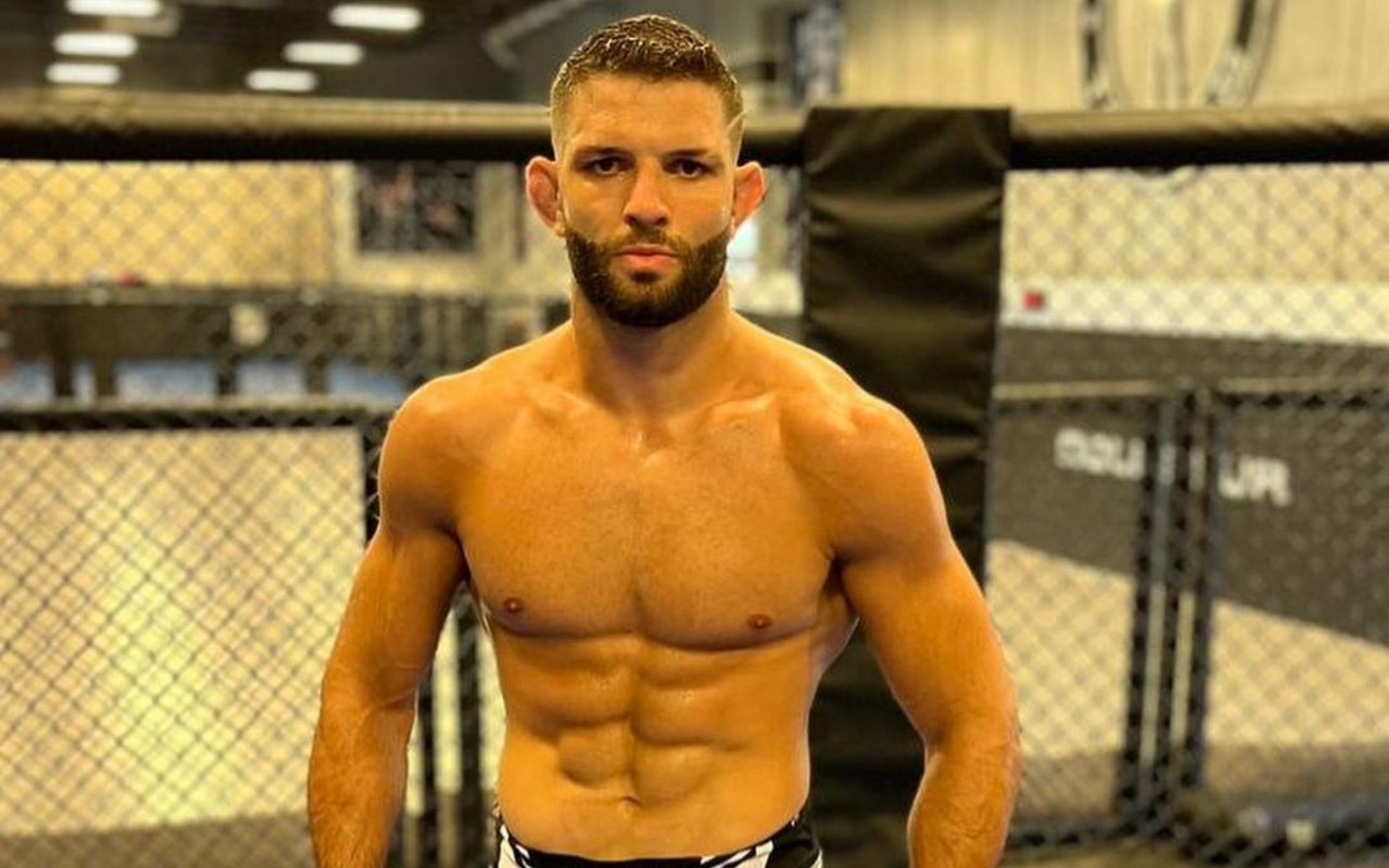
UFC fighter details "awkward" bathroom encounter with anti-doping agent
UFC lightweight contender Thiago Moises recently weighed in on an uncomfortable bathroom incident involving an anti-doping agent. Moises is gearing up to square off against Ludovit Klein in a 155-pound bout at UFC Louisville, scheduled for June 8 at the KFC Yum! Center in Kentucky.
Ahead of his upcoming fight, the 29-year-old Brazilian underwent a random anti-doping test conducted by UFC's drug testing partner, Drug Free Sport International (DFSI).
Moises recently turned to X (formerly Twitter) and shared that his dog unexpectedly entered the bathroom while providing his urine sample in front of the testing agent. Amid the challenge of maintaining focus during the process, the official struck up a conversation about Moises' dog, further complicating the situation. He wrote:
"So this happened... While I was doing the anti-doping (peeing in front of the anti-doping guy), my dog came into the bathroom. I was trying to concentrate to pee with another man looking at it, and he just wanted to start a conversation about my dog. That was awkward."
Check out Thiago Moises' post below:
Moises, coming off a third-round TKO win against Mitch Ramirez in March, rebounded from a KO loss to Benoit Saint Denis at UFC Paris last September. He currently holds a professional career record of 18-7, with a UFC record of 7-5.
How does UFC's new anti-doping program differ from its partnership with USADA?
The new drug testing program launched at the start of the year following the UFC's contentious split with its long-term partner, USADA.
While there are some minor distinctions between the new anti-doping program and its predecessor, the core processes largely remain unchanged. One significant alteration for fighters involves the collection of samples by testing agents.
In the new program, the MMA promotion has enlisted DFSI, the agency responsible for drug testing in the NFL and Major League Baseball, to collect samples from the roster of over 600 fighters.
According to the UFC, DFSI employs over 5,000 collection personnel worldwide, offering broader coverage than the previous program. Fighters are required to undergo random and unannounced testing throughout the year, ensuring continuous surveillance.
After the samples are gathered, they are processed by the Sports Medicine and Research Testing Laboratory (SMRTL), which is a WADA-accredited lab.
Should a sample analyzed by SMRTL yield a positive result and subsequently lead to potential disciplinary actions against a fighter, Combat Sports Anti-Doping, an organization funded by the UFC, will oversee the imposition of sanctions.